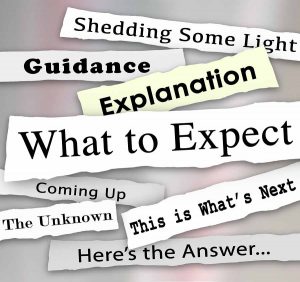When you think of municipal bond investing, do you picture an adrenaline-pumping amusement park ride or a weekend nap in a chaise?
For long-time investors, it’s more akin to a snooze. After all, reaping a steady stream of tax-free income without the compulsion of reading the market tea leaves is relaxing.
Yet headlines today are replete with references of stomach-churning market tumult and an abrupt sea change in investor sentiment.
Why the disconnect?

Streams, not screams, in municipal bond investing
Currently in vogue is the Great Rotation theory, which holds that investors are running from bonds into the more lucrative arms of equities.
Citing, among other things, a recent break in the historic, 54 consecutive weeks of inflows into muni mutual funds, they see a massive investor “flight” from bonds to equities fueled by expected tax cuts and significant public spending.
As we’ve noted (“What Investors Should Watch Amid ‘Great Rotation”), trees don’t grow to the sky, and guessing where the political winds might blow is futile.
Now comes word that outflows from stock funds are at their fastest clip since the presidential election.
Withdrawals, which totaled $3.7 billion for the week ending Jan. 18, were the largest since the election week of Nov. 9. Meantime, bonds funds – taxable as well as munis – reported inflows of $4.7 billion during the week, according to Reuters.
Taking this information as a roadmap can cause whiplash.
Consider, too, another perspective of the bond market, which posits that 2016 was filled with terror-inducing ups and downs.
In a Bond Buyer article titled “Why Muni Experts Need a New Crystal Ball,” analysts said they regarded last year as a roller coaster ride, with the aforementioned influx into bond funds, an increased supply of issues and a selloff at year’s end.
What’s really worth noting in muni investing
For individual investors, these characterizations are not only confusing, they’re meaningless. Muni investors don’t need to keep a minute-by-minute watch on market swings, oil prices, the Fed’s next move and an infinite number of other factors. Nor do they need clairvoyance.
Munis are attractive for their regular flow of tax-free income and peace of mind.
Yet investors can expect more grist for the mill as just-released figures show the U.S. grew at an annualized rate of just 1.6% last year, the lowest level in five years.
Will that effect the Fed’s decision on whether to raise rates? Or change the thinking by Congress and the administration on spending and taxes?
We don’t know, but we expect a raft of opinions on the matter.
Amid the fight for attention, there will always be a deluge of market commentary. Successful municipal bond investors treat it as entertainment, not guidance. Investing first for quality, then yield, when their investment dollars are available, are the only principles that matter.

